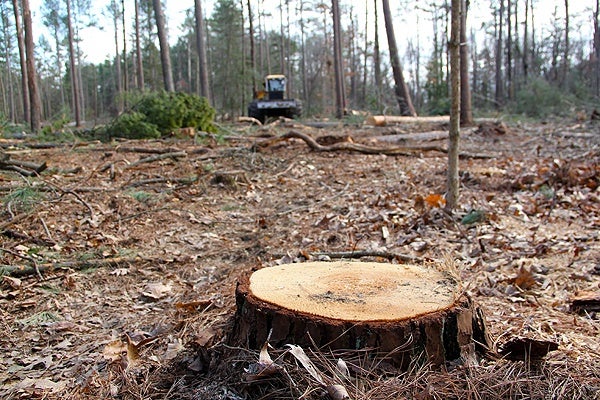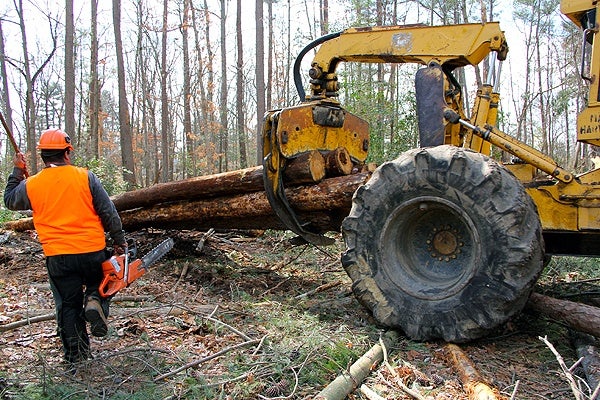N.J. helps property owners target tree-killing beetles
New Jersey officials have started strategically chopping down trees on state land in the Pinelands to prevent the spread of the Southern pine beetle. For the first time this year, the state is also giving grants for private landowners to ward off the pest.
The Southern pine beetle has invaded about 33,000 acres in the Pinelands since it was first discovered in New Jersey in 2001. Most of the affected areas are privately owned land.
“Everyone has a stake in this,” said Ron Corcory of the New Jersey Forestry Service. “Whether it’s state-owned land or Pinelands land, if a municipality or property owner has an infestation on their property and they do nothing, then it’s going to spread.”
Landowners with five or more acres in the Pinelands can apply for up to $7,500 to hire a contractor to cut down infested trees and clear a buffer zone of healthy trees. Pine beetles damaged fewer acres last year than expected, but state foresters say they have seen beetle activity early this year, likely due to the mild winter, and have mobilized containment efforts early as a result. “The mild winter is absolutely a cause for very serious concern at this point,” said Nancy Wittenberg, executive director of the New Jersey Pinelands Commission. “Southern pine beetles don’t like the cold, and a long, cold spell would have definitely curtailed what we would have expected to see this year.”
The tiny bugs, about the size of a grain of rice, burrow under the bark of trees and kill them.
Pine beetle infestations can be spotted by the small balls of gooey sap, like chewing gum, that appear on tree bark, and by dying pine needles.
WHYY is your source for fact-based, in-depth journalism and information. As a nonprofit organization, we rely on financial support from readers like you. Please give today.













